Premium Only Content
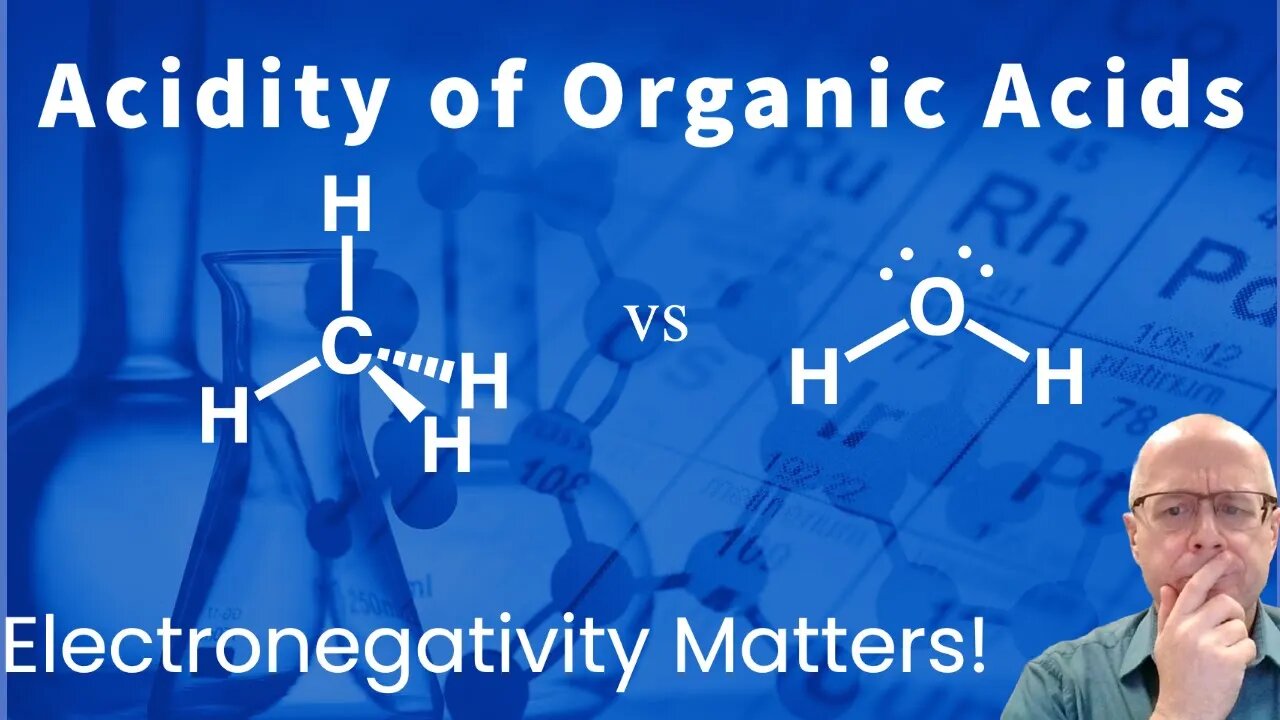
Organic Chemistry Acidity Problem: Explain the pKa Difference Methane vs water
In this video I will explain why water is more acidic than methane. It is critical that an organic chemistry student is able to not only predict what protons on a molecule are acidic but why they are the most acidic. In this video I will demonstrate the steps that a student should use to explain the differences in pka (ka). pka = -log ka.
The large the ka the more acidic a molecule is. The lower the pka the more acidic a molecule is.
Consider the following reaction:
HA + H2O - H3O+ + A-
The ka expression for the above reaction would be: ka = [H3O+][A-]/[HA].
To achieved a large ka using the above expression the concentration of H3O+ and the conjugate base(A-) must be large and the concentration of the parent acid must be low. In other words the more the reaction favors the right side of the reaction the more acidic it is. When comparing two different molecules it is important to understand that acidity is referring to the ka and ka is referring to the concentration of H3O+ and the conjugate base (A-). The higher the concentration of conjugate base at equilibrium the more to the right the reaction is. It stands to reason that if we can predict the relative basicity of two conjugate bases we can predict how far to the right a reaction goes and therefore predict which parent acid is more acidic.
In organic chemistry I (Intro to organic chemistry) it is important to be able to identify the acidic protons (hydrogens) and be able to predict how strong or weak the conjugate base will be. An important factor that effects the conjugate base is resonance. If a conjugate base resonances it is likely to be less basic and therefore more stable in water. Remember the stronger the acid the weaker the conjugate base. Strong acids have weak conjugate bases. Strong bases have weak conjugate acids. Acids and bases are important. I wish you all success in organic chemistry.
Being able to push arrows and draw resonance forms is a critical skill that you must learn to be successful in organic chemistry. Performing acidity practice problems will help you be successful in organic chemistry.
This video is part of a series called How to be Successful in Organic Chemistry. It this series I go over numerous problems that a student could expect to see in there organic chemistry 1 course. Doing organic chemistry practice problems will make you more successful in organic chemistry and biochemistry.
I recommend that you download the problem from the link below and attempt the problem yourself and use this video to correct your work.
Download the problem from this video at the following link:
Good Luck and Good Chemistry!
Please subscribe to my channel by clicking the link below!
https://www.youtube.com/c/AllInwithDrBetts?sub_conformation=1
Like this video and leave a comment below!
#acidity #electronegativity #acids #bases
#organicchemistry
#organiccompounds
#organicproblems
#organictutor
#simpleresonance
00:00 Introduction
00:11 Initial explaination of ka and pka
01:47 Writing the deprotonation reactions of methane and water
02:18 writing the ka expression for methane
03:03 Writing the ka expression for water
03:36 explaining the difference in pkas
06:01 Conclusion
-
 6:07
6:07
Chemistry Tutor
1 year agoHow to Draw a Lewis Structure From a Molecular Formula C5H8Cl2 Help with Chemistry!
77 -
 7:17
7:17
Chemistry Tutor
2 years agoOrganic Chemistry Acidity Problem: Explain the pKa Difference Acetic Acid & Chloroacetic acid
159 -
 2:43
2:43
Chemistry Tutor
2 years agoOrganic Chemistry Acidity Problem: Deprotonating an Organic Acid
85 -
 9:43
9:43
Chemistry Tutor
2 years agoOrganic Chemistry Acidity Practice Problems: Explain the pKa Difference Ethanol vs Acetic Acid
162 -
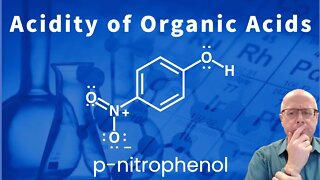 4:54
4:54
Chemistry Tutor
2 years agoOrganic Chemistry Acidity Problem: Deprotonating and Resonance of the Phenoxide Anion
65 -
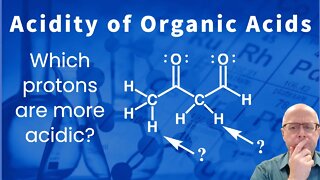 5:15
5:15
Chemistry Tutor
2 years agoOrganic Chemistry Acidity Practice Problem: Comparing Acidity of Protons on a Single Molecule
166 -
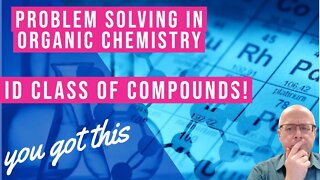 5:54
5:54
Chemistry Tutor
2 years agoOrganic Chemistry Classes of Compounds Problem Solved
40 -
 2:59
2:59
Chemistry Tutor
2 years agoOrganic Chemistry Orbital Overlap Problem: Formaldehyde (carbonyl) sp2
87 -
 4:23
4:23
Chemistry Tutor
2 years agoOrganic Chemistry Orbital Overlap Problem: Acetylene (triple bond) sp
43 -
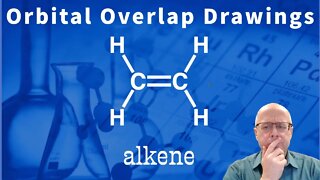 3:38
3:38
Chemistry Tutor
2 years agoOrganic Chemistry Orbital Overlap Problem: Alkene (double bond) sp2 Ethylene
39